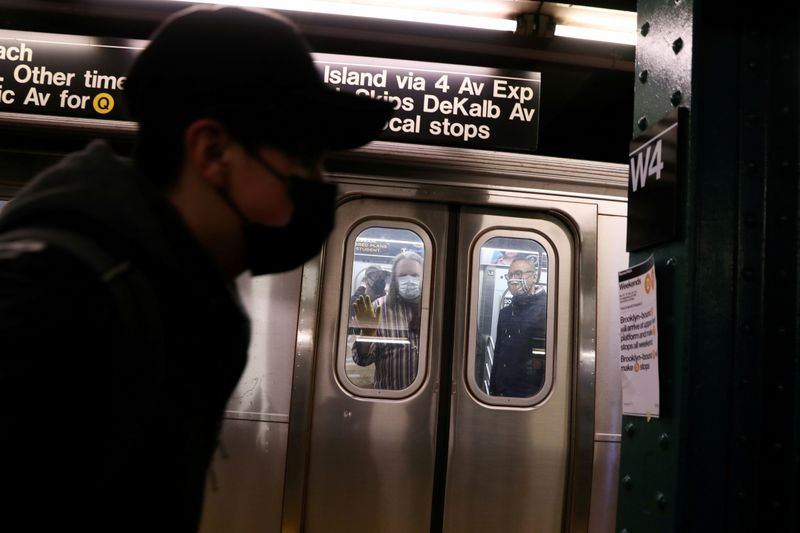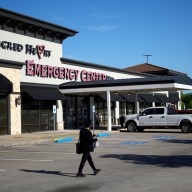(Reuters) – New York’s Metropolitan Transportation Authority (MTA) on Wednesday authorized borrowing up to $2.9 billion from a U.S. Federal Reserve loan program to aid its coronavirus-battered budget.
The new borrowing, which follows a $450.7 million MTA loan from the Fed’s Municipal Liquidity Facility (MLF) in August, would allow the cash-strapped agency to end its current fiscal year with a balanced budget, officials said.
The MTA faces nearly $16 billion in projected deficits through 2024 due a sharp drop in ridership on its buses, subways and trains amid the pandemic and is considering fare and toll changes, massive service cuts, and the layoff of more than 9,300 workers.
“This is just ugly,” said MTA Chief Financial Officer Robert Foran. “This is something we must consider to survive.”
The nation’s largest public transportation network, which has been pushing for $12 billion in federal virus aid, is scheduled to vote on its fiscal 2021 budget next month.
The MTA and Illinois, which took out a $1.2 billion loan in June, were the only two users of the MLF as of the end of October. Illinois could also turn again to the MLF to help deal with a $3.9 billion budget deficit.
New Jersey, which considered the option of a MLF loan to fill a $4.28 billion revenue gap in its budget, instead sold $3.67 billion of bonds in the U.S. municipal market on Tuesday.
The $500 billion MLF, which the Fed authorized in April and which is scheduled to expire on Dec. 31, was designed as a backstop for the muni market by allowing states and local governments to access short-term, cash-flow loans.
It is one of around a dozen emergency credit facilities launched by the central bank this year to help ease the blow from the pandemic.
(Reporting By Karen Pierog in Chicago; Editing by Chris Reese and Chizu Nomiyama)
















